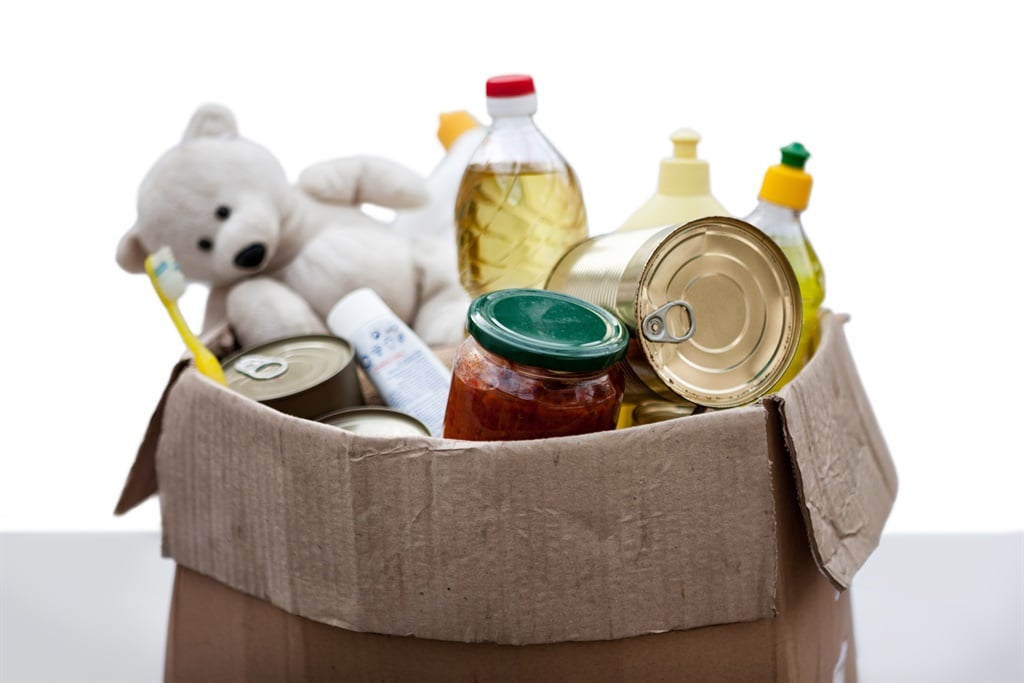
Food parcels are an expensive and complicated way to feed hungry people.
In a presentation to Parliament’s portfolio committee on social development on Thursday, the SA Social Security Agency (Sassa) admitted that it was encountering problems distributing food parcels.
These included people intercepting the food parcels and using them for their own purposes, as well as conflict at various drop-off points about who had received food parcels and who had not.
Now it had been decided that the fight against hunger – exacerbated by the outbreak of the Covid-19 coronavirus and the subsequent lockdown – should be to give people cash.
In addition to the problems cited above, Sassa’s food parcels appeared to be exceptionally expensive.
The parcels contained 12.5kg of maize meal; a dietary supplement (for example, cereal); 1.5 litres of cooking oil; three packets of soy mince; six cans of sardines; 2.5kg of sugar beans; 2kg of beans; 2.5kg of bread flour; 200 tea bags; 20g of yeast; 500g of peanut butter; 200g of toothpaste; 1kg of soap; and 24 sanitary towels.
READ: ‘Present evidence of corrupt activity’ – MEC Moiloa challenges critics
Sassa refused to say how much each food parcel cost, but City Press’ sister publication, Rapport, spoke to independent sources in three different provinces familiar with the distribution. They each indicated that such a food parcel amounted to about R1 200.
But, according to Rapport’s own cost calculations, the same items would cost a person about R850 at a Makro wholesale store.
Dianne Dunkerley, Sassa’s executive manager of grant administration, said on Thursday that the government was battling to increase its capacity to get provisions to those in need.
But there were also other problems. These included the hijacking of trucks that delivered the food packages, threats against personnel who supported certain community members and not others, as well as unrealistic expectations regarding the resources that were available, she said.
Sassa recommended that, in the future, aid should take the form of cash payments into the bank accounts of recipients, e-Wallet payments or food vouchers that could be sent electronically.
Professor Andries du Toit, director of the Institute for Poverty, Land and Agrarian Studies at the University of the Western Cape (UWC), said cash transfers were the best way to distribute grants.
“We have to trust that poor people know best when it comes to their own needs,” said Du Toit.
“We sit with this patronising fear that people will abuse the money. Yes, some will, but research shows that people who receive grants know best.
“Poor people are experts when it comes to making money last.”
Du Toit said cash grants would allow money to be ploughed back into the informal economy, adding that food vouchers and parcels just enriched wholesalers.
“With cash, the local vegetable vendor can get money into her wallet to get food or electricity into her own home.”
Professor Rina Swart, a dietician at UWC whose research focuses specifically on malnourishment through food programmes, said food parcels had to be seen as a short-term solution in emergency cases.
“If it’s applied only as a short-term solution then the nutritional value is important … but that’s not always practically attainable because food parcels are too heavy – for example milk and fresh vegetables – or too fragile – eggs – to be transported or don’t remain fresh,” said Swart.
She said another reason food parcels should be seen only as a short-term solution was because the parcels were often more expensive than the food being supplied, because of procurement and transportation costs.




 Publications
Publications
 Partners
Partners









